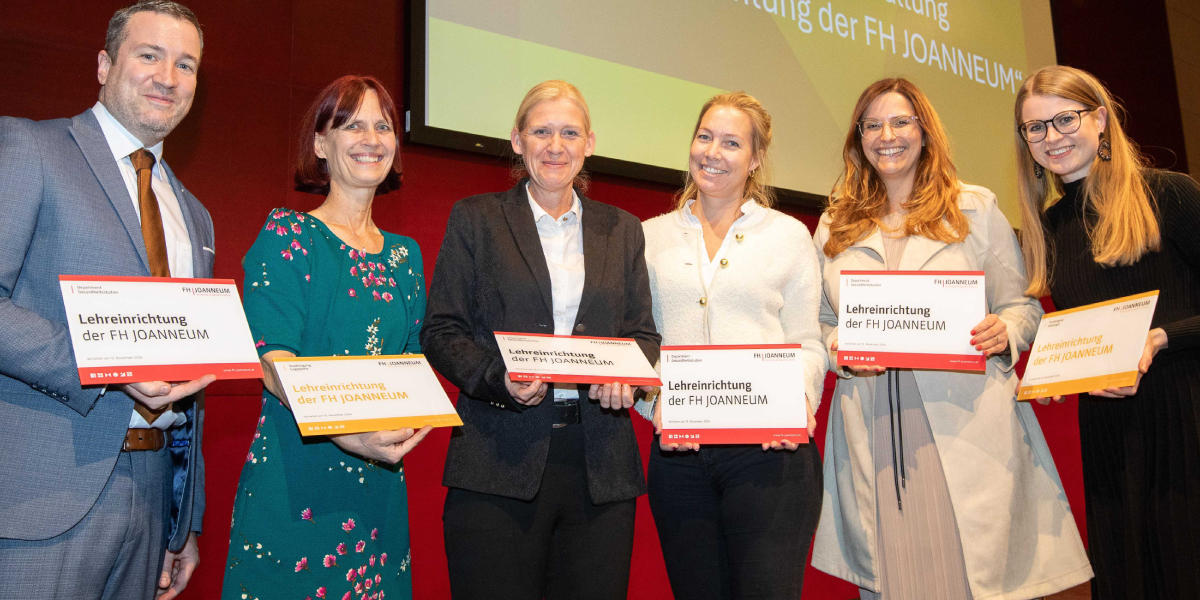The ‘Day of Health’ focused on interdisciplinary exchange in order to further intensify cooperation between the degree programmes ‘Biomedical Science’, ‘Dietetics and Nutrition’, ‘Occupational Therapy’, ‘Healthcare and Nursing’, ‘Midwifery’, ‘Logopedics’, ‘Physiotherapy’ and ‘Radiography’ and to promote a deeper mutual understanding. Teaching staff from the department contributed to this with insights into best practice examples from teaching and research, which not only reflected their professional expertise, but also provided valuable impetus for the further development of teaching and learning formats. Specific projects and successful methods were also presented that show how theory and practice can be meaningfully combined.
One such example is the SimplifAI project, which uses artificial intelligence (AI) to translate X-ray findings into simple language so that patients can better understand the findings. This research project is being carried out in cooperation with the Medical University of Graz.
Robert Darkow, Chair of the Department of Health Studies and Head of the Institute of Logopedics at FH JOANNEUM: ‘The intention of this day is to network. That’s why the lectures are deliberately designed to convey to colleagues from other disciplines what we have hardly or less associated with the respective professions or to offer starting points for an exchange in research or teaching.’ These presentations included ‘Points of contact: Hygiene and medical IT systems’, “From climate change to sensor technology – dietetics is everywhere” or “World cultural heritage of midwifery”.
Award-winning teaching institutions
Following the ‘Day of Health’, the team from the Department of Health Studies thanked particularly committed companies that offer and supervise work placements for students by awarding them the ‘FH JOANNEUM Teaching Institution’ plaque. 99 institutions received the award for the first time and 59 were honoured again. At FH JOANNEUM, work placements at selected teaching institutions are an essential part of the curriculum and contribute to the high quality of education. They enable students to apply the knowledge they have acquired in practice and develop their personal skills.








